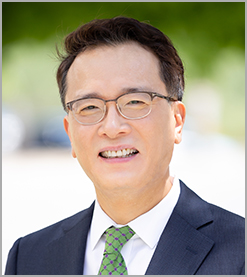김한요 목사
10여년 전 아들이 대학을 다닐 때, 마약 문제로 아들과 논쟁을 했던 것이 기억납니다. 아들은 마약을 합법화시켜서 음성적으로 번져 가는 마약 문제를 표면화시켜야 한다는 주장이었습니다. 그래야, 마약 값이 싸지고 마약으로 인한 범죄가 급격하게 줄어들 것을 전망했습니다. 합법화 시키면 오히려 마약 구입하는 루트가 투명해지고 그로 인한 뒷골목의 범죄는 사라질 것이라 말했습니다. 저는 의료 처방을 위한 것 외에는 백해무익한 마약은 반드시 퇴치 되어야 한다고 주장을 하며, 저녁 먹는 자리에서 열을 올렸습니다. 저의 주장은 간단했습니다. 술이나 담배 같이 중독성이 있고 그 해로움이 수십 배 더한 물건을 합법화 하면 죄인은 오히려 더 악을 도모하는 일에 사용할 것이기에 기승을 부릴 것이라 주장했습니다.
뉴욕주는 2021년 3월 ‘기호용 대마초’를 합법화 했습니다. 그 이후 허가 받은 공인 판매점이 속속 들어서기 시작했고, 21세 이상 성인에게 신분증을 확인하고 판매가 되었습니다. 합법적 대마 판매 장소가 60여곳으로 늘어남과 동시에 1,400 여 곳의 불법 판매소도 독버섯처럼 번져갔고, 신분증을 확인하고 판매하는 것도 거의 사라지기 시작했습니다. 미국은 더이상 해결할 수 없는 문제가 홈리스 문제입니다. 홈리스 문제의 핵심에는 바로 마약이 있다고 합니다. 뉴욕 맨하튼이나, 엘 에이 다운타운 길거리 마다 마약 중독된 자를 흔하게 볼 수 있습니다. 왜 법을 만들었는데도 이런 문제가 생겼을까요? 저는 단적으로 이렇게 답을 드리고 싶습니다. 죄인을 과소 평가했기 때문입니다. 마약을 합법화 해서 투명하게 열어주면 제재가 될 것이라는 생각은 순진하다 못해 어리석은 것입니다. 죄는 우리를 훨씬 더 악하고 교활하게 만듭니다.
옛날 IMF 시절, 필리핀 정부는 관광사업을 일으키기 위해 관광객들에게 불쾌감을 주는 바퀴벌레 퇴치를 위해 100마리당 1불씩 환전해 주겠다는 정책을 발표했습니다. 1불 벌기도 힘든 시절에 이런 정책은 나라에 바퀴벌레 씨를 말리는 좋은 정책이 될 것이라 기대되었지만, 오히려 바퀴벌레 대량 생산하는 공장들이 우후죽순처럼 들어서면서 바퀴벌레를 더 키우는 꼴이 되었던 적이 있습니다.
요즘 트럼프 대통령의 행정명령으로 10-25% 때리는 관세로 세계가 난리입니다. 그러나 속내는 미국을 망가뜨리는 마약 문제를 잡기 위한 것이라는 말도 있습니다. 결론은 법이 문제를 해결해 주지 않습니다. 잠시 속도를 줄일 수 있을지 모르지만, 죄인은 그 어떤 법으로도 자제가 되지 않습니다. 사람이 변해야 합니다. 복음으로 완전히 변해야 합니다. 속부터 변해야 하고, 생각이 변하고, 태도가 변해야 합니다.
People Must Change, Not the Law
Rev. Bryan Kim
About ten years ago, I had a debate with my son, who was in college at the time, about drug-related issues. He argued that legalizing drugs would bring the growing problem to the surface, making them cheaper and drastically reducing drug-related crimes. He believed that if drugs were legalized, their distribution would become transparent, eliminating backstreet crime. It was a heated discussion over dinner. I, on the other hand, firmly insisted that all harmful and non-medical drugs should be eradicated. My stance was simple: if substances are far more damaging and addictive than alcohol or cigarettes were legalized, criminals would exploit them for even greater evil, allowing crime to thrive.
In March 2021, the state of New York legalized recreational cannabis. Since then, authorized retail stores have begun selling it to adults 21 and over with valid ID. The number of legal retail shops has grown to around 60. However, at the same time, illegal cannabis sales have spread like poisonous mushrooms, with over 1,400 unauthorized outlets operating. ID checks have become rare. One of the most pressing issues in the U.S. today is homelessness, and at the heart of this crisis lies the problem of drug addiction. Walking through Manhattan, New York, or Los Angeles, it’s easy to spot individuals struggling with substance abuse. Why do these problems persist despite laws designed to solve them? The answer is simple: we have underestimated human sinfulness. The belief that legalizing drugs would eradicate illegal trade and crime was not just naive but foolish. Sin makes people more corrupt and cunning.
A similar situation unfolded in the Philippines during the IMF crisis. To boost tourism, the government announced a policy offering $1 for every 100 cockroaches turned in. Cockroaches had been a significant nuisance, affecting visitors’ experiences, and the expectation was that this initiative would completely eradicate them. Instead, factories that mass-produced cockroaches sprang up like mushrooms—people raised them for profit.
This week, former President Trump’s executive order imposing a 10–25% tariff is causing global upheaval. However, it has been suggested that this move aims to address internal drug problems in the U.S. The ultimate conclusion is this: laws do not solve problems. They may slow things down, but no law can change human nature or enforce self-control. True transformation must come from within. People must change. And that change can only happen through the gospel. We must be transformed from the inside—through our thoughts, attitudes, and, ultimately, our hearts.

